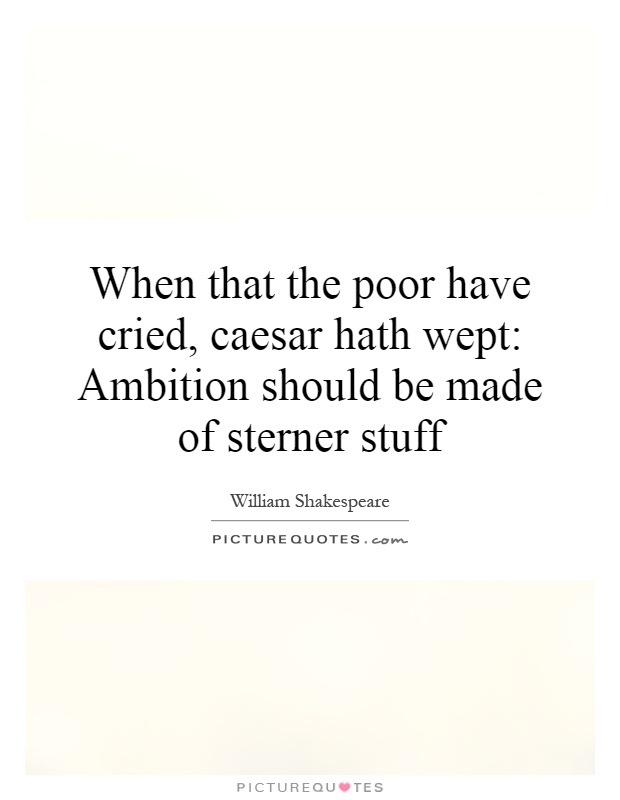When that the poor have cried, caesar hath wept: Ambition should be made of sterner stuff

When that the poor have cried, caesar hath wept: Ambition should be made of sterner stuff
The quote "When that the poor have cried, Caesar hath wept: Ambition should be made of sterner stuff" is from William Shakespeare's play Julius Caesar. These words are spoken by the character Antony in Act 3, Scene 2, during Caesar's funeral speech. In this speech, Antony is trying to turn the Roman citizens against the conspirators who assassinated Caesar, and he uses Caesar's compassion for the poor as a way to show his humanity and contrast it with the ambition of the conspirators.The quote highlights the contrast between Caesar's empathy for the poor and the ruthless ambition of those who plotted against him. Caesar is portrayed as a leader who cares for the welfare of his people, as evidenced by his tears for the poor. This shows that he is not just a powerful ruler, but also a compassionate and empathetic man. On the other hand, the conspirators are depicted as ambitious and power-hungry individuals who are willing to betray and kill Caesar in order to further their own interests.
The phrase "Ambition should be made of sterner stuff" suggests that true ambition should be based on strength and determination, rather than on deceit and treachery. It implies that the conspirators' ambition is weak and lacking in moral integrity, while Caesar's compassion for the poor is a sign of true strength and nobility.
This quote is a powerful reminder of the importance of empathy and compassion in leadership. It shows that true greatness is not just about power and ambition, but also about caring for the well-being of others. Shakespeare uses this quote to explore themes of power, ambition, and morality, and to challenge the audience to reflect on what it truly means to be a great leader.












 Friendship Quotes
Friendship Quotes Love Quotes
Love Quotes Life Quotes
Life Quotes Funny Quotes
Funny Quotes Motivational Quotes
Motivational Quotes Inspirational Quotes
Inspirational Quotes